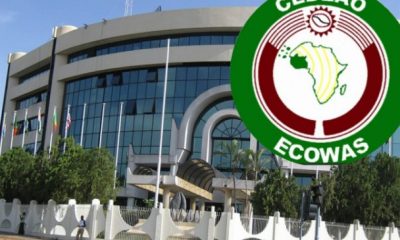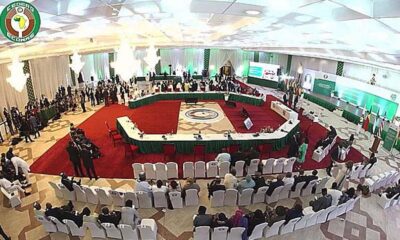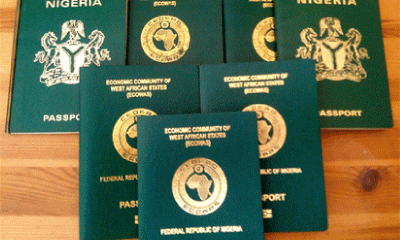Africa
Why we lifted sanctions on Niger Republic, Mali, Burkina Faso- ECOWAS
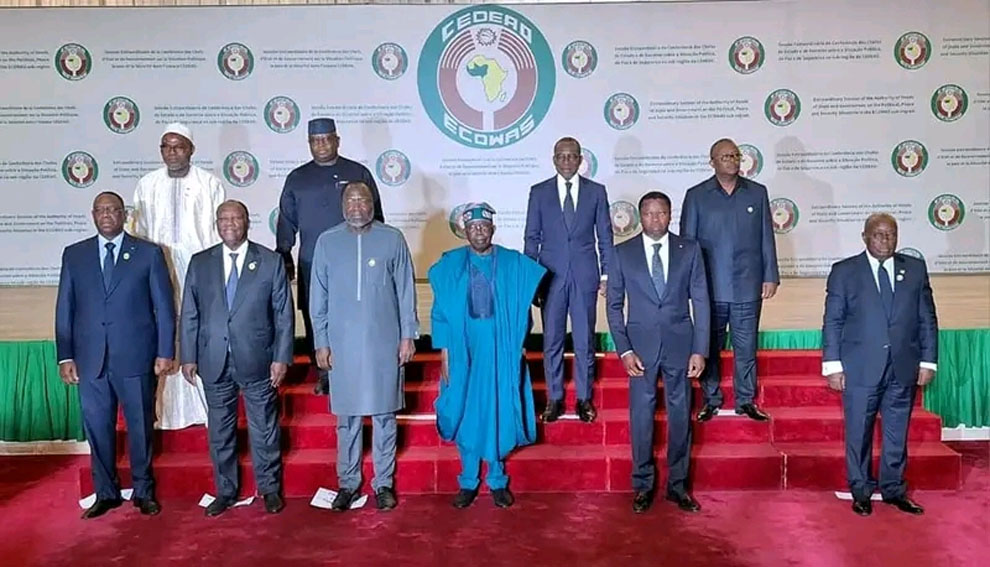
Why we lifted sanctions on Niger Republic, Mali, Burkina Faso- ECOWAS
The Economic Community of West African States (ECOWAS) says the decision to lift sanctions on Mali, Niger and Burkina Faso was based on the need to maintain regional unity and security.
Dr Omar Touray, President of the ECOWAS Commission said this at the end of the extraordinary session of the Heads of State and Government of ECOWAS on Saturday in Abuja.
He said that the authority took note of the period of Lent and the approaching month of Ramadan and the impact on citizens, adding that pleas were also received from prominent leaders including retired Gen. Yakubu Gowon.
”The authority takes note that the withdrawal will have political, social, socio economic, financial and institutional implications for the three countries as well as for ECOWAS as a region.
”The authority recalls that within the framework of regional cooperation against terrorism, violent extremism and organised crime, the three countries benefited from about 100 million US dollars mobilised by UMR within the context of ECOWAS plan of action against terrorism.
”Moreover, some funds allocation, about 7.5 million U.S. dollars is being made towards supporting the three countries in acquiring the equipment to help their fight against terrorism.
”The withdrawal will affect security cooperation in terms of sharing intelligence and participation in regional counterterrorism initiatives.
”Such as the Accra initiative, and the Multinational Joint Task Force,’‘ he said.
READ ALSO:
- EFCC nabs eleven suspected currency racketeers in kano
- CBN plans to bar BDCs from street trading, limits cash forex purchase to $500
- Presidency says Tinubu will visit Qatar in March, denies snub claims
Touray added that the withdrawal of the countries from the sub-regional bloc would lead to diplomatic and political isolation at the international scene where the countries have obtained support for their candidates in the contest for international positions.
”The authority recognises that the withdrawal will automatically affect the immigration status of the citizens, as they may be required to obtain visas to travel around the region.
”Citizens may no longer be able to reside or set up businesses under ECOWAS arrangement and may be subject to diverse national laws.
The three countries will cease to use ECOWAS passports across biometric national identity cards, and the brown card vehicle insurance.
”The authority recognises that the three member states represent 17.4
per cent of the region’s 425 million population.
Even though they represent 10% of the region’s GDP, their departure will constitute a reduction of the market size of ECOWAS.
He said that the sanctions were lifted to promote trade and benefits derived from several regional projects and programmes including the Regional Food Security Reserve.
”The regional support programme for powerful pastoralism in the Sahel, which is being funded by the World Bank to the tune of 215 million US dollars is also a project that benefits the three countries.
”The three countries also benefit from the Sahel regional irrigation support programme, which is being funded by the World Bank to the tune of 103 million US dollars.
”The three regional food systems resilient support programme in the amount of 230 million, funded by the World Bank is also benefiting the three countries.
”West African single identity and regional integration and inclusion project is another programme that the three countries benefit from.”
He said that other projects the countries benefits from are the ECOWAS regional electricity market, West African Power Pool project, which links member states to a regional electricity grid for improved access to electricity.
He said not lifting the sanction would result in the halt or the suspension of all ECOWAS projects and programmes worth more than 500 million US dollars.
Touray said that the projects collectively valued at approximately 321.6 million U.S. dollars.
”Reviewing the implications at the institutional level, the authority notes that the withdrawal will not only require the closure of four regional entities in Burkina Faso, two regional bodies in Mali and one regional office in Asia.
”It will also affect the job security of some 130 ECOWAS staff who are citizens of the three countries. Currently 77 staff members are from Burkina Faso, 23 are from Mali, and 32 are from Niger.
Why we lifted sanctions on Niger Republic, Mali, Burkina Faso- ECOWAS
Africa
Okada rider allegedly stabbed to death by wife over money

Okada rider allegedly stabbed to death by wife over money
A Bodaboda operator identified as Geoffrey Ouma, was allegedly stabbed to death by his wife in their home in Ongata Rongai town, Kenya after he returned with less money than usual.
Witnesses reported that the man fondly called Jeff, had just come back from work, having earned significantly less due to heavy rainfall affecting business.
His wife confronted him about the household items that they lacked and demanded that he provided the money to get them. When he was unable to do so, an argument ensued between them.
READ ALSO:
- Police rescue two persons abducted in Lagos
- Miyetti Allah accuses Benue community of poisoning 20 cows
- Wike’s aide slams Atiku, says it’s too late to buy integrity
In a fit of rage, she rushed to the kitchen to grab a knife.
Sensing the imminent danger, the Bodaboda operator attempted to flee but slipped and fell on the floor.
The wife then stabbed him in the chest, ending his life instantly.
By the time neighbors arrived, it was too late; he was already dead.
The two have been married for around 5 years and have a child.
It was gathered that the Ongata Rongai Police have arrested the woman.
Okada rider allegedly stabbed to death by wife over money
Africa
W’African juntas impose levy on imported goods from ECOWAS nations

W’African juntas impose levy on imported goods from ECOWAS nations
West African neighbours Mali, Burkina Faso and Niger have announced a new 0.5% levy on imported goods as they seek to fund a new three-state union after leaving the larger regional economic bloc, they said in a statement.
The Alliance of Sahel States began in 2023 as a security pact between the military rulers of the three countries, who all took power in coups in recent years.
It has since grown into an aspiring economic union with plans for biometric passports and closer economic and military ties.
The levy was agreed on Friday and will take effect immediately.
It will affect all goods imported from outside the three countries, but will not include humanitarian aid, the statement said.
It will “finance the activities” of the bloc, it said, without giving details.
READ ALSO:
The move ends free trade across West Africa, whose states have for decades fallen under the umbrella of the Economic Community of West African States (ECOWAS), and highlights the rift between the three states that border the Sahara Desert and influential democracies like Nigeria and Ghana to the south.
The juntas of the three countries announced plans to leave ECOWAS last year, accusing the bloc of failing to assist in their fight against Islamist insurgents and ending insecurity.
ECOWAS had imposed economic, political and financial sanctions on the three in a bid to force them to return to constitutional order, to little effect.
Mali, Burkina Faso and Niger are some of the poorest countries in the world and have been overrun by an armed Islamist insurgency over the past decade.
The violence, committed by groups linked to al Qaeda and Islamic State, has killed thousands, forced millions to flee, and eroded faith in the democratically-elected governments who initially struggled to contain it.
W’African juntas impose levy on imported goods from ECOWAS nations
Africa
Niger coup leader sworn in as president for five years

Niger coup leader sworn in as president for five years
Niger’s military ruler Gen Abdourahamane Tchiani has been sworn in as the country’s president for a transitional period of five years.
Tchiani has led the country since 2023, after he deposed Niger’s elected president, Mohamed Bazoum.
On Wednesday, Tchiani took the presidential office under a new charter that replaces the West African country’s constitution.
He was also promoted to the highest military rank of army general in the country and signed a decree ordering that all political parties be dissolved.
During the ceremony in Niamey, Tchiani said of his new military rank, “I receive this distinction with great humility… I will strive to live up to the trust placed in me.”
The transition to democratic government is consistent with the recommendations of a commission formed following national deliberations.
The new charter states that this five-year timeframe is “flexible” based on the country’s security position.
READ ALSO:
- AI will replace doctors, teachers, others in 10 years – Bill Gates
- Senate seeks FG’s immediate intervention to slash data prices
- Reno Omokri: Nigeria gives more opportunities than US, Britain, Canada
Niger has been plagued by Islamist attacks for years, which was one of the reasons junta officials staged their coup.
The military takeover came after a number of others in the region; adjacent Mali, Guinea, and Burkina Faso are also ruled by dictatorships.
All four countries have split ties with erstwhile colonial power France, forming new alliances with Russia.
And all save Guinea have pulled out of ECOWAS, the West African regional group.
Niger’s relations with ECOWAS broke down when the junta demanded a three-year transition period to democratic governance directly after the coup.
Ecowas labelled this plot a “provocation” and vowed to interfere with force before eventually backing down.
Gen Tchiani’s regime is prosecuting former President Bazoum on charges of high treason and damaging national security.
Bazoum and his wife remain in the presidential palace, despite the fact that his son was granted provisional freedom in January.
According to state-run news agency ANP, Gen Tchiani stated that Niger’s new charter adheres to traditional constitutions while also implementing “unprecedented measures to protect our natural resources so that Nigeriens truly benefit from the exploitation of their wealth.”
Niger coup leader sworn in as president for five years
-
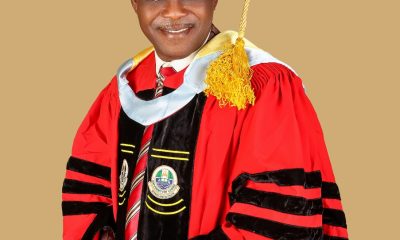
 Education1 day ago
Education1 day agoErudite mass comm lecturer Oscar Odiboh becomes full professor at Delta State University
-

 metro2 days ago
metro2 days agoAutopsy reveals cause of Nigerian boxer death during fight in Ghana
-

 Entertainment2 days ago
Entertainment2 days agoA colleague raped me, Actress Lolo 1 alleges
-

 metro2 days ago
metro2 days agoScavenger killed, many injured as military grenade explodes in Lagos
-

 Sports2 days ago
Sports2 days agoWife of Manchester United goalkeeper, Onana, robbed of £62,000 handbag, Rolex
-

 International2 days ago
International2 days agoTrump: VOA goes off air in Nigeria, Ghana, others
-

 metro1 day ago
metro1 day agoNurse leaves US, seeks new life in Nigeria, says everything not money
-
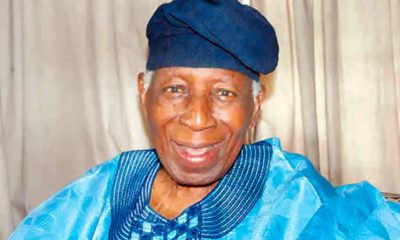
 metro1 day ago
metro1 day agoBreaking: Former Oyo governor Olunloyo dies at 89

